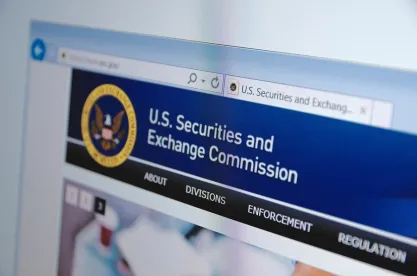On January 11, the U.S. Securities and Exchange Commission (SEC) issued four separate whistleblower awards. Each of the awarded whistleblowers provided the SEC with original information that led to a successful enforcement action.
Through the SEC Whistleblower Program, qualified whistleblowers are entitled to an award of 10-30% of the funds collected by the government in the enforcement action. The SEC Whistleblower Program also offers anti-retaliation protections to whistleblowers. One such protection is confidentiality; thus, the SEC does not disclose any identifying information about award recipients.
In the first award order, the SEC granted $450,000 to a whistleblower who provided important information that prompted the SEC to open an investigation into the alleged misconduct. According to the award order, the whistleblower “provided substantial, ongoing assistance, including participating in voluntary interviews with Commission staff and providing voluminous important documents.”
In the second award order, the SEC awarded over $20,000 to a whistleblower. According to the SEC, the whistleblower “provided significant information that alerted Commission staff to an ongoing fraud, prompting the opening of the investigation.” The whistleblower additionally “provided critical documents and participated in post-tip conversations with Commission staff that helped advance the investigation.”
In the third and fourth award orders, the SEC issued awards in the amount of 30% of the monetary sanctions collected or to be collected in the covered enforcement actions. A 2020 whistleblower program rule established a presumption of a statutory maximum award of 30% in cases where the maximum award would be $5 million or less and no negative factors were present. The SEC may depart from presumption if the assistance provided by the whistleblower was “limited” or if a maximum award would be “inconsistent with the public interest.”
In both awards, the SEC determined that the presumption of the maximum award percentage applies because no negative factors were present and the whistleblower provided more than limited assistance.
In the third award order, the SEC notes that the whistleblower “provided important, new information that prompted Commission staff to open an investigation into the alleged misconduct” and “participated in voluntary interviews and provided additional information.” In the fourth order, the SEC states that the whistleblower “alerted the Commission to the on-going fraud, in part, prompting the opening of a new investigation into the alleged conduct, gave testimony to the Commission staff, and provided numerous documents that assisted the staff in its investigation, saving Commission staff time and resources.”
The SEC has already issued a number of awards in 2022. On January 6, it issued a whistleblower award of over $13 million and on January 10, it issued two awards totaling more than $4 million.
Since issuing its first award in 2012, the SEC has awarded approximately $1.2 billion to 245 individuals. The SEC Whistleblower Program broke several records in the 2021 fiscal year, including the largest whistleblower award in program history: a $114 million award issued in October 2020.
Individuals considering blowing the whistle to the SEC should first consult an experienced SEC whistleblower attorney to ensure they are fully protected and qualify for the largest award possible.
Geoff Schweller also contributed to this article.




 />i
/>i

